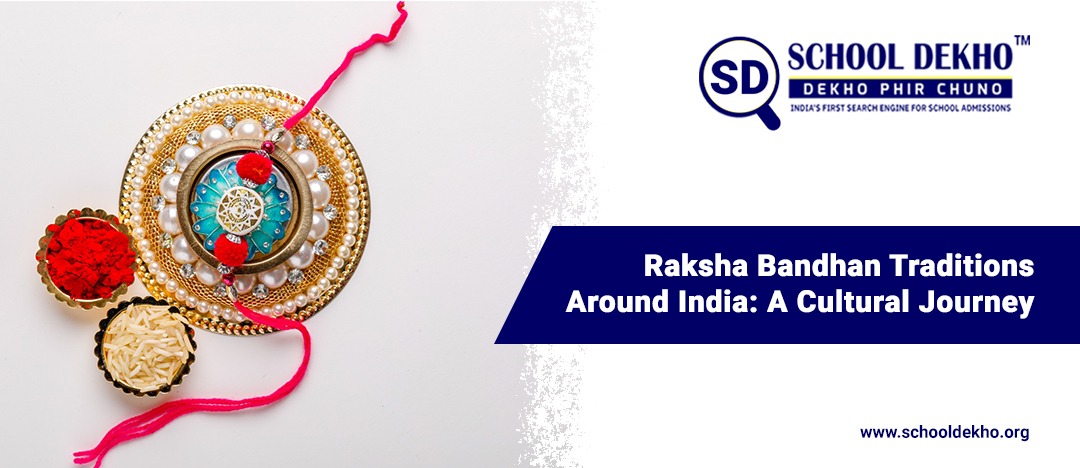Raksha Bandhan Traditions Around India: A Cultural Journey

India is a land of diverse cultures, and this diversity is beautifully reflected in the way festivals are celebrated across the country. One such festival that highlights this cultural richness is Raksha Bandhan.
Let's embark on a cultural journey to explore the various Raksha Bandhan traditions observed across different regions of India.
North India:
In North India, Raksha Bandhan is marked by a strong emphasis on sibling bonds. Sisters tie rakhi, a sacred thread, on their brothers' wrists, symbolizing their love and the brothers' promise to protect them. Brothers, in turn, offer gifts and promise to stand by their sisters. The tradition extends beyond siblings, as women also tie rakhis to men who have supported and protected them.
West India:
In western states like Gujarat and Maharashtra, Raksha Bandhan coincides with the festival of Nariyal Purnima or Coconut Full Moon. Coconuts are offered to the sea as a symbol of gratitude and protection. This practice stems from the coastal culture and the significance of the sea in these regions.
South India:
In the southern states, Raksha Bandhan is known as Avani Avittam. It is a sacred day for the Brahmin community, marked by the changing of the sacred thread (yagnopavitam) worn by men. The day involves rituals and prayers, symbolizing renewal and the pursuit of knowledge.
East India:
In Bengal, Rakhi Purnima is celebrated as Jhulan Purnima. Images of deities are placed on swings and adorned with rakhi. This swing festival is characterized by joyous music, dance, and celebrations. In Odisha, this day is associated with farmers, who start plowing their fields for the upcoming sowing season.
Central India:
In central India, Raksha Bandhan is celebrated with fervor and joy. The region's tribal communities have their own unique tradition. The festival often involves dancing, singing, and merriment, as families and communities come together to celebrate the bond of protection and love.
Beyond Borders:
Raksha Bandhan transcends religious and cultural boundaries. In some areas, Hindus tie rakhis to Muslims, and vice versa, symbolizing unity and communal harmony. This practice showcases the festival's universal message of love and protection.
Modern Adaptations:
While these traditions have deep historical roots, modern times have brought about adaptations. In urban areas, Raksha Bandhan has evolved to include celebrating the bond between friends, colleagues, and even pets. The essence of the festival—protecting and cherishing relationships—remains intact.
A Tapestry of Love:
Raksha Bandhan traditions across India weave a beautiful tapestry of culture, love, and unity. While practices might differ, the core essence of the festival remains the same: strengthening the bonds of protection and affection among family members, friends, and the larger community.
As Raksha Bandhan approaches, let's celebrate the diversity that defines our country and embrace the rich cultural tapestry that binds us together.
Contact with Us
Call: 1800 - 2588 - 074
Mail: info@schooldekho.org
Student’s Best Education Portal | School Dekho | India's First School Search Engine | Best Schools Near Me | Find Schools Near Me | Dekho Phir Chuno
#dekhophirchuno






